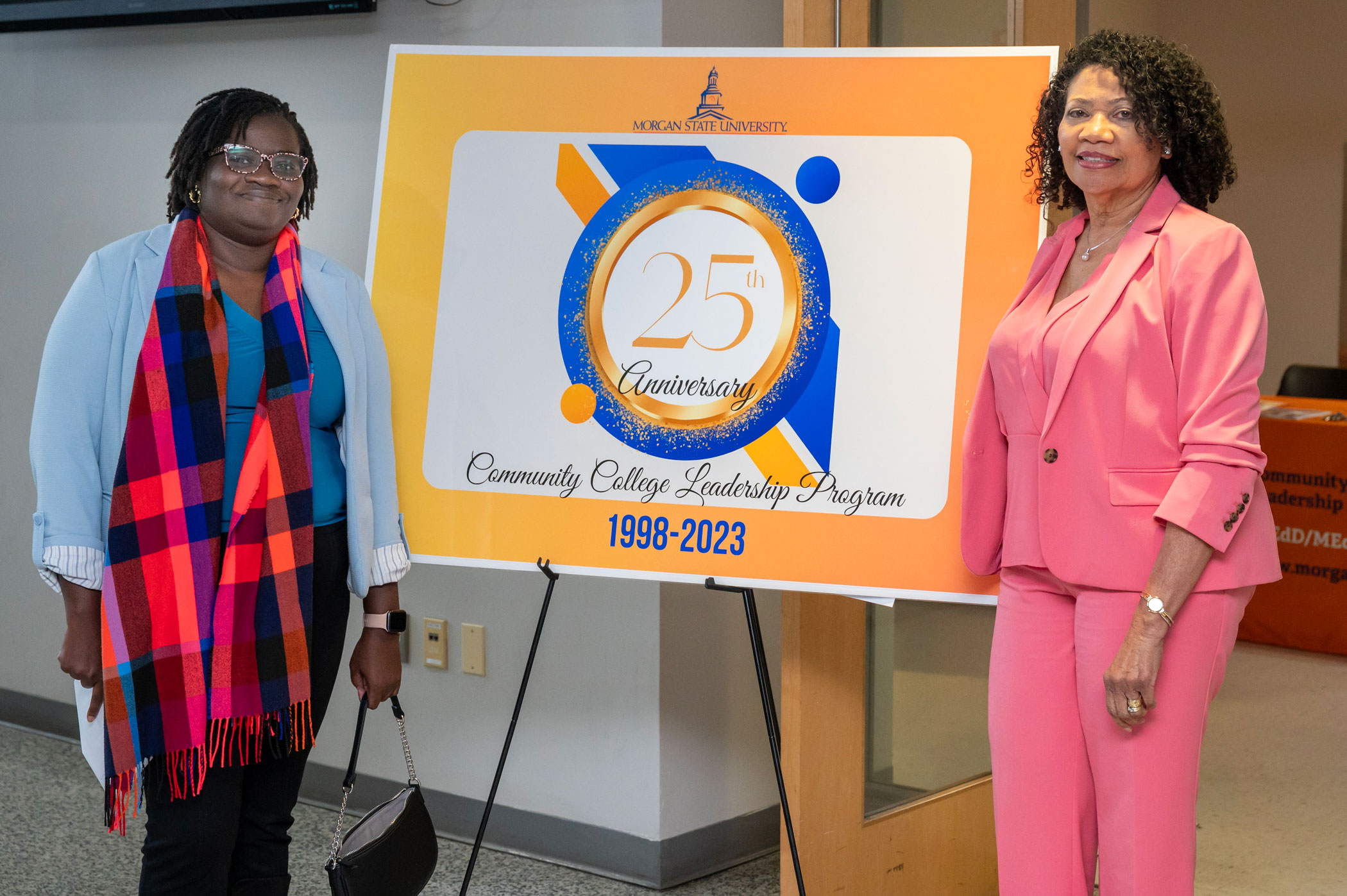Written By the Morgan State Newsroom
Morgan State University’s School of Education and Urban Studies (SEUS) is celebrating the 25th anniversary of its Doctor of Education Degree (Ed.D.) in Community College Leadership (CCLP). Established in 1998, the program has evolved to become one of the most extensive community college leadership development programs in the United States, recognizing more than 250 graduates to date. Its mission is to increase diversity in American community colleges by developing a group of globally aware community college leaders who can appropriately respond, understand, and contribute to the rapidly changing world. Graduates of the CCLP have succeeded in advancing to community college leadership positions and demonstrating transferrable skills that propelled them to positions in other sectors of higher education, government service, and community engagement.
To acknowledge this 25-year milestone, the Community College Leadership Doctoral Program held a series of events during April 2024 as part of National Community College Month. This included featuring guest speakers such as Howard County Executive and Morgan alumni Calvin Ball and professional and student-led presentations on new research and advances in leadership.
As a significant number of community college leaders approach retirement, the expectations of their successors have changed. Both educators and the community emphasize workforce development for economic stability and independence. The Community College Leadership Program emphasizes supporting and inspiring research relevant to the contemporary issues and concerns of the nation’s 1038 community colleges. Students enrolled in the CCLP are equipped to handle the unique and diverse leadership challenges associated with teaching and leading a 21st-century community college. In their research and approach, program scholars and graduates understand and respond to shifting priorities.
“Newly minted leaders, no matter their roles, must be ready for the unexpected. Many aspire to the presidency role, but some seek positions as dean or vice president or to be better equipped as faculty members,” said Myrtle E.B. Dorsey, Ph.D., director and professor of practice, for Community College Leadership at Morgan. “Although research and theory are important, ‘putting theory into practice’ is the watchword for this initiative. Our students are prepared to take on advanced leadership opportunities that require rigorous expertise.”
Only available to individuals with direct experience in higher education, the program’s overarching goal is to help reverse the underrepresentation of doctoral degree holders in community colleges and other access-oriented institutions. Graduates of the program are well-equipped to handle the demands of the marketplace and have increased research capacity. This program follows the Quality Matters guidelines and implements the American Association of Community Colleges (AACC) competencies.
The program started as a campus-based three-year cohort model but is now available 100% online. Since its inception, more than 500 scholars have enrolled in 62 cohorts, leading to 250 plus graduates. As of this Fall, 136 scholars are currently enrolled in the program.
The program has produced a wide array of leaders including Dr. Kimberly Beatty, chancellor at Metropolitan Community College-Kansas City; Dr. Derek Moore, president at New Mexico Junior College in Hobbs, New Mexico; Dr. Joseph Issac, president of the Nubian American Advanced College in Lagos, Nigeria; Dr. Bill Heiser, chief operating officer of Anne Arundel County Public Schools; Dr. Irving Clark, president of Southern Crescent Technical College in Georgia; and the aforementioned Dr. Calvin Ball, Howard County Executive, among others.
Due to increased interest, expanded vision, and new programmatic goals, SEUS has added a new Doctor of Philosophy (Ph.D.) degree in Community College Leadership. The new doctoral program will be available for Fall 2025 admission. SEUS is believed to be the only university to offer a complete suite of advanced community college leadership degrees, including a master of Education in Community College Administration and Instruction (ME.d), a Doctor of Education Degree (Ed.D.) in Community College Leadership, and now the Doctor of Philosophy.
Congratulations to the School of Education and Urban Studies on 25 successful years of providing this program, creating a pipeline of exceptional students, outstanding graduates, and learned faculty with extraordinary accomplishments in community college leadership.

